‘All political lives end in failure, because that is the nature of politics and of human affairs,” a failed politician once said. It’s true — but failure does make for good copy. Anthony Seldon’s autopsy of the 49 inglorious days of Liz Truss’s time in Downing Street is a gripping read. How Not to Be a Prime Minister is the book’s witty subtitle; have Kemi Badenoch or Keir Starmer, the subjects of two biographies, read it yet? They really ought to.
Just who is the real Keir Starmer? Even after Labour’s decisive general election victory that confounding question remains. None has come as close to a comprehensive answer as Tom Baldwin, the former Times journalist and Labour adviser who spent many dozens of hours with our unknowable prime minister — an uncharacteristic display of openness Starmer is unlikely to repeat. Some of his advisers and spinners were furious when this sympathetic but unslavish book was proposed, and readers will see why: it’s part political history, part psychotherapy transcript, and Baldwin sees almost everything — and writes about it with an old-fashioned elegance. Whenever the prime minister does something weird or unpolitical, consult this book and you’ll find out why.
William Collins £25
Buy a copy of Keir Starmer: The Biography here
Unleashed by Boris Johnson
Apologies to the 48 per cent who voted Remain, but Boris Johnson’s memoir is funny — occasionally properly, laugh-out-loud funny — and he knows how to spin an entertaining yarn. Unlike most other politicians, he can write. These are rare qualities in Westminster and his autobiography, when it hits fifth gear, is a reminder of what might have been; not least the impassioned defence of levelling-up and hymns to the opportunities of Brexit. Of course, genuine self-examination is in short supply, but come on — this is a book by Boris Johnson. In the evasions and dissembling, always well written at least, there’s more than enough to vindicate his critics, so for once he offers something for everyone.
William Collins £30
Buy a copy of Unleashed here
Advertisement
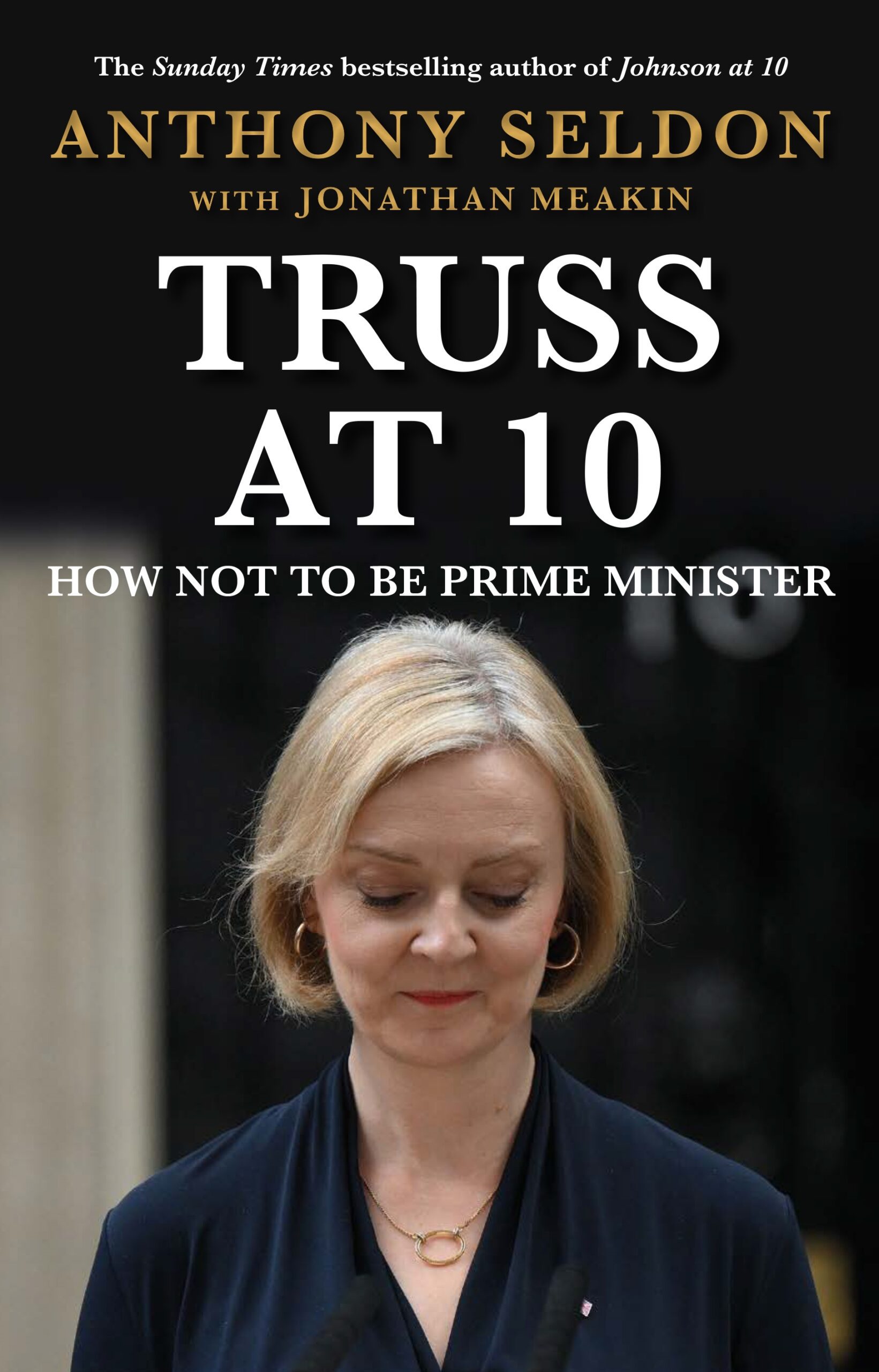
Truss at 10: How Not to Be Prime Minister by Anthony Seldon with Jonathan Meakin
How do they do it? Anthony Seldon’s post mortems of each premiership are now as much a part of the constitutional formality of resignation as going to see the King or speaking from the steps of No 10. The historian’s books are always good and richly sourced, but this one, on the most ignominious 49 days British politics will ever know, might well be the best. It pays Liz Truss the ultimate compliment of taking her seriously — there’s even room for praise here, believe it or not — and as such the scholarly verdict is all the more damning. It’s not often that self-consciously serious books on politics are compulsively readable and this entertaining. For that Truss and Seldon can share the comic plaudits.
Atlantic £22
Buy a copy of Truss at 10 here
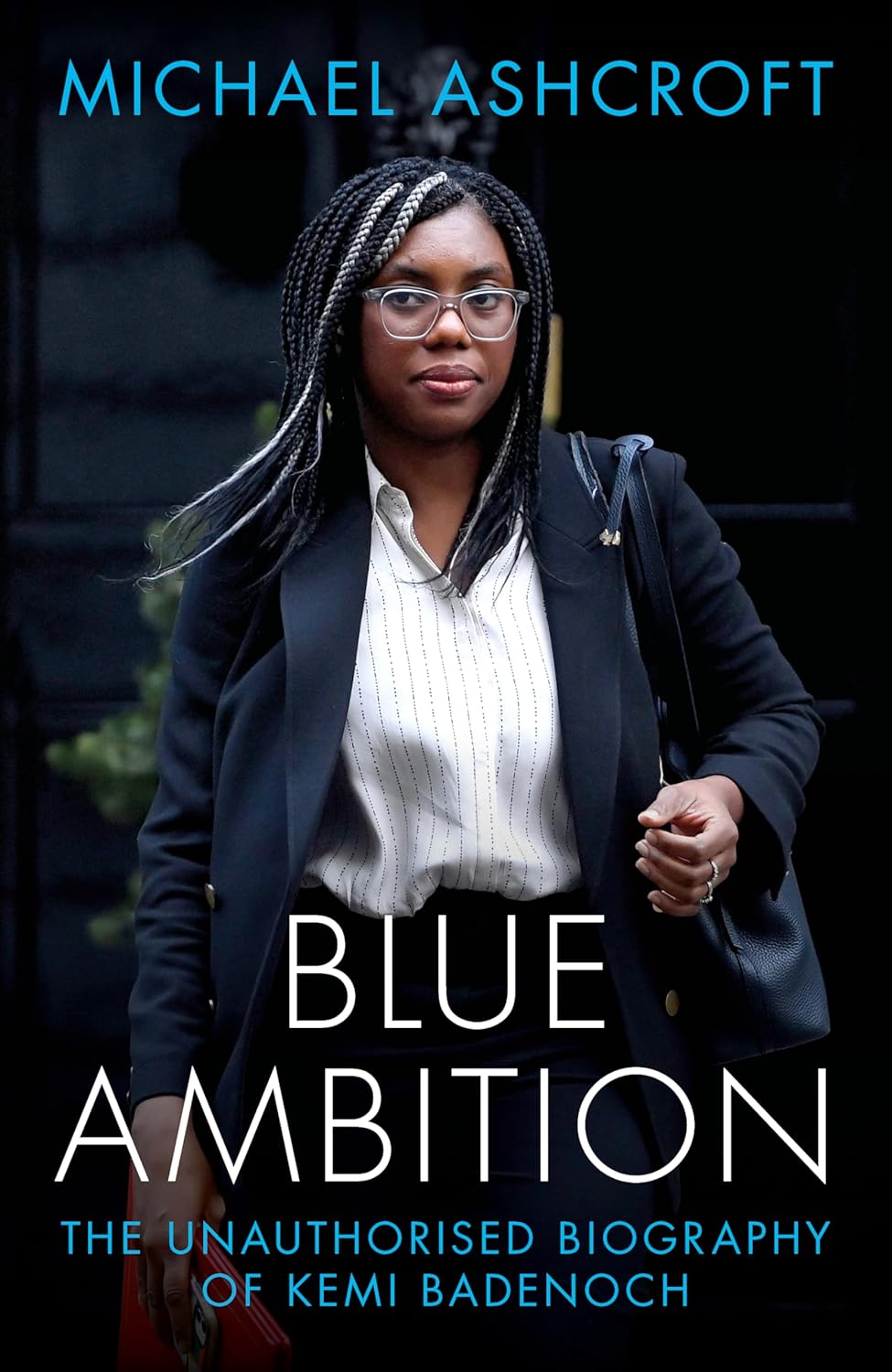
Blue Ambition: The Unauthorised Biography of Kemi Badenoch by Michael Ashcroft
It really has been a historic year in British politics: Labour won an election, the Conservatives elected a black woman as their leader and Michael Ashcroft produced a readable biography. The billionaire Tory peer’s rush-jobs — researched and largely written by ghost writers — are seldom any good. His biography of Kemi Badenoch is an exception. It captures everything that makes the new Tory leader compelling: the Nigerian childhood, the loud-and-proud contrarianism, the iconoclasm on questions of race and identity and the always engaging if frequently divisive personality. The prose doesn’t sparkle, but readers will learn a lot.
Biteback £20
Buy a copy of Blue Ambition here
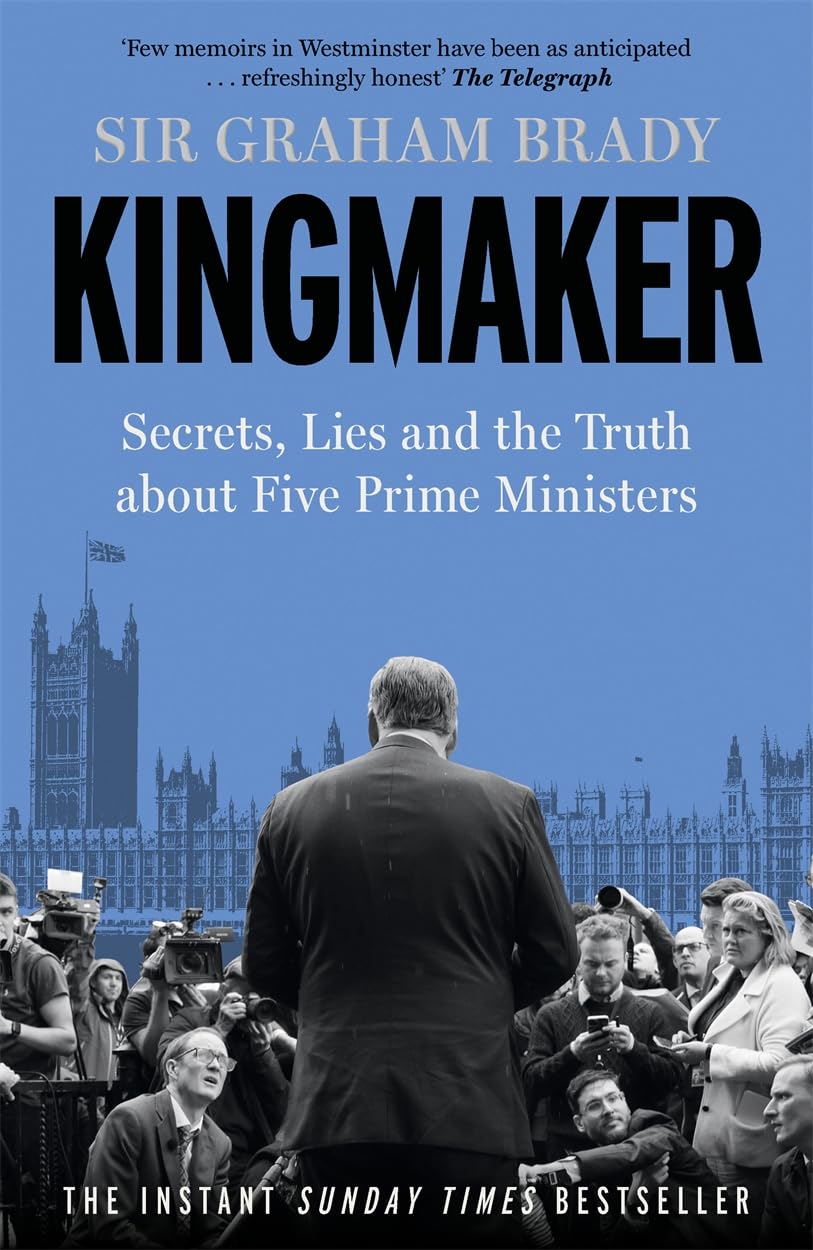
Kingmaker: Secrets, Lies, and the Truth about Five Prime Ministers by Graham Brady
The perfect companion piece to Seldon and Johnson, the former 1922 Committee chairman’s memoir dispenses spectacularly with the obligations that once defined him — discretion, restraint and saying nothing about the number of letters of no-confidence in his office safe — and shows us how power really works at the commanding heights of British politics. By turns waspish and bone-dry, Graham Brady is a charming guide to the mortal combat that was the Conservative Party 2015-2024. Myths are debunked, prime ministers exposed and secrets revealed. As long as the Tories exist, his book will be essential.
Ithaca £25
Buy a copy of Kingmaker here
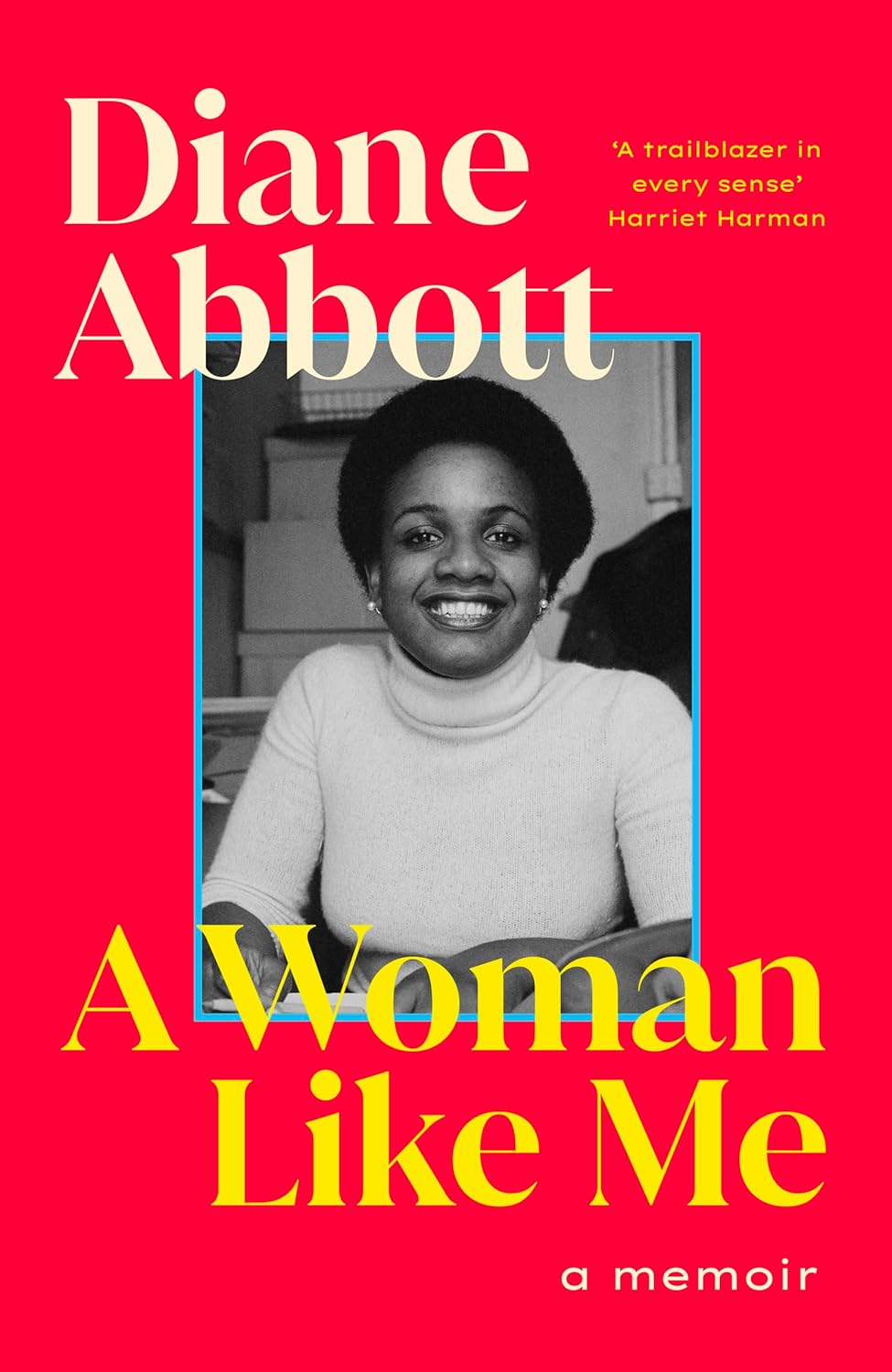
A Woman Like Me: A Memoir by Diane Abbott
After a year in which she became a symbol of Labour’s civil war, Diane Abbott’s memoir is a reminder of just how significant a politician she is — and takes us well beyond the two-dimensional portrayals of recent years. She is witty and warm as she retraces her historic journey: the child of Jamaican immigrants who kept defying the odds to reach Cambridge, parliament and the shadow cabinet. No punches are pulled, not least regarding the young Jeremy Corbyn’s unconventional dating style or on the human impact of the racist abuse that has been the price of admission for her career in politics. Everyone needs to read a political book that isn’t about swaggering posh boys once in a while — make it this one.
Viking £25
Buy a copy of A Woman Like Me here
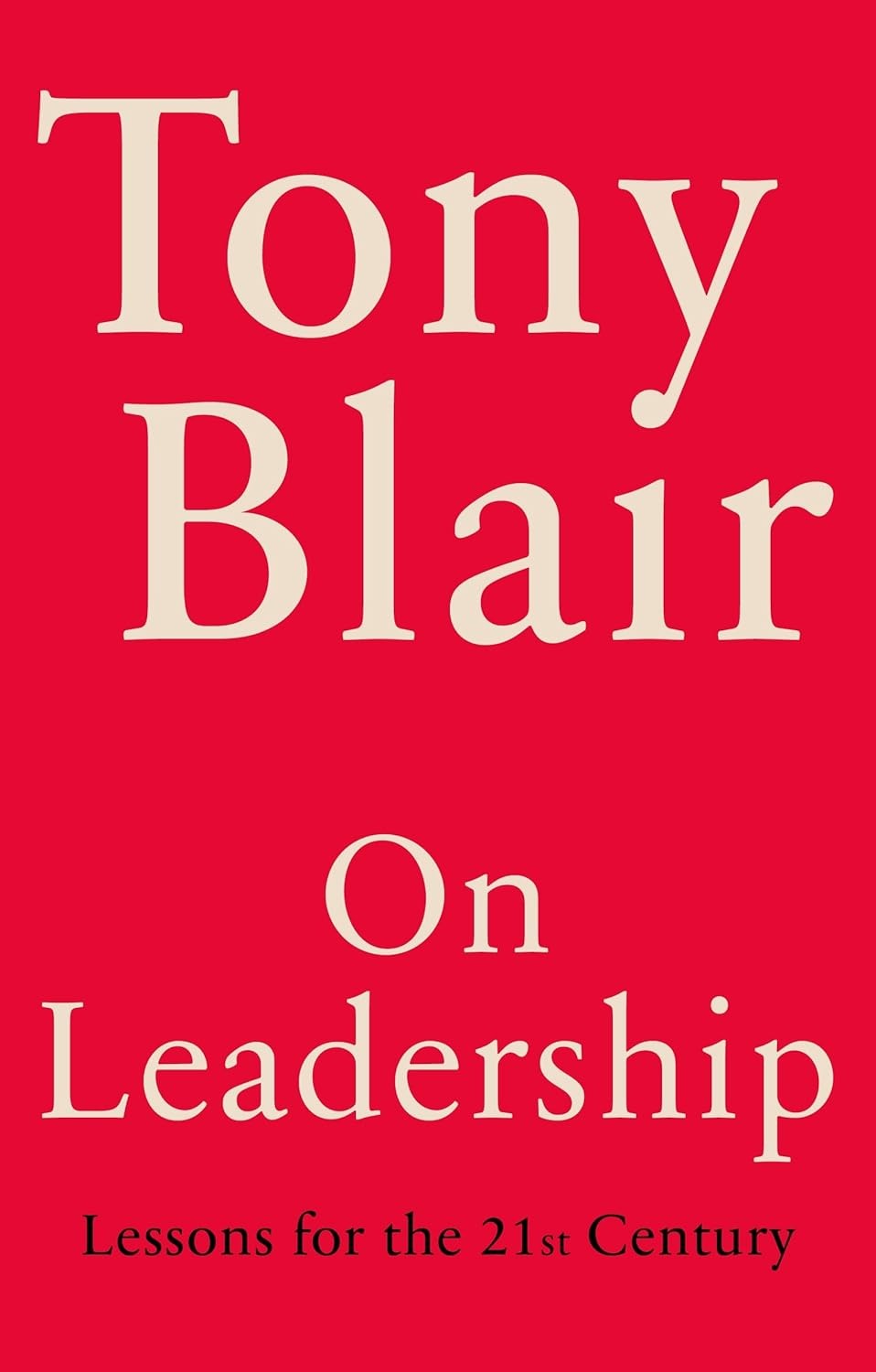
On Leadership: Lessons for the 21st Century by Tony Blair
Over the 17 years that have passed since his resignation as prime minister and abrupt departure from British politics, Tony Blair has been on quite the journey — this breezy little book is the closest we’ll get to a sequel to his autobiography of the same name. He calls it the instruction manual he wished he’d had as prime minister, and while it’s unlikely that readers will agree with all of its prescriptions (anyone for Singapore-style megabucks salaries for MPs?), they are thought-provoking and lucidly done.
Hutchinson Heinemann £25
Buy a copy of On Leadership here
Advertisement

War by Bob Woodward
At 81, the elder half of the team that exposed Watergate is still doing what he does best: ferreting through Washington’s corridors of power. His latest is really an account of three wars: in Ukraine, Gaza and the struggle for the US presidency. Reading it makes you wonder where the Joe Biden of its pages disappeared to on the campaign trail; the outgoing president rails against Benjamin Netanyahu as “that son of a bitch” and Putin as “the epitome of evil”. And while Woodward transparently hates Trump, there’s no better guide to his impact.
Simon & Schuster £25
Buy a copy of War here
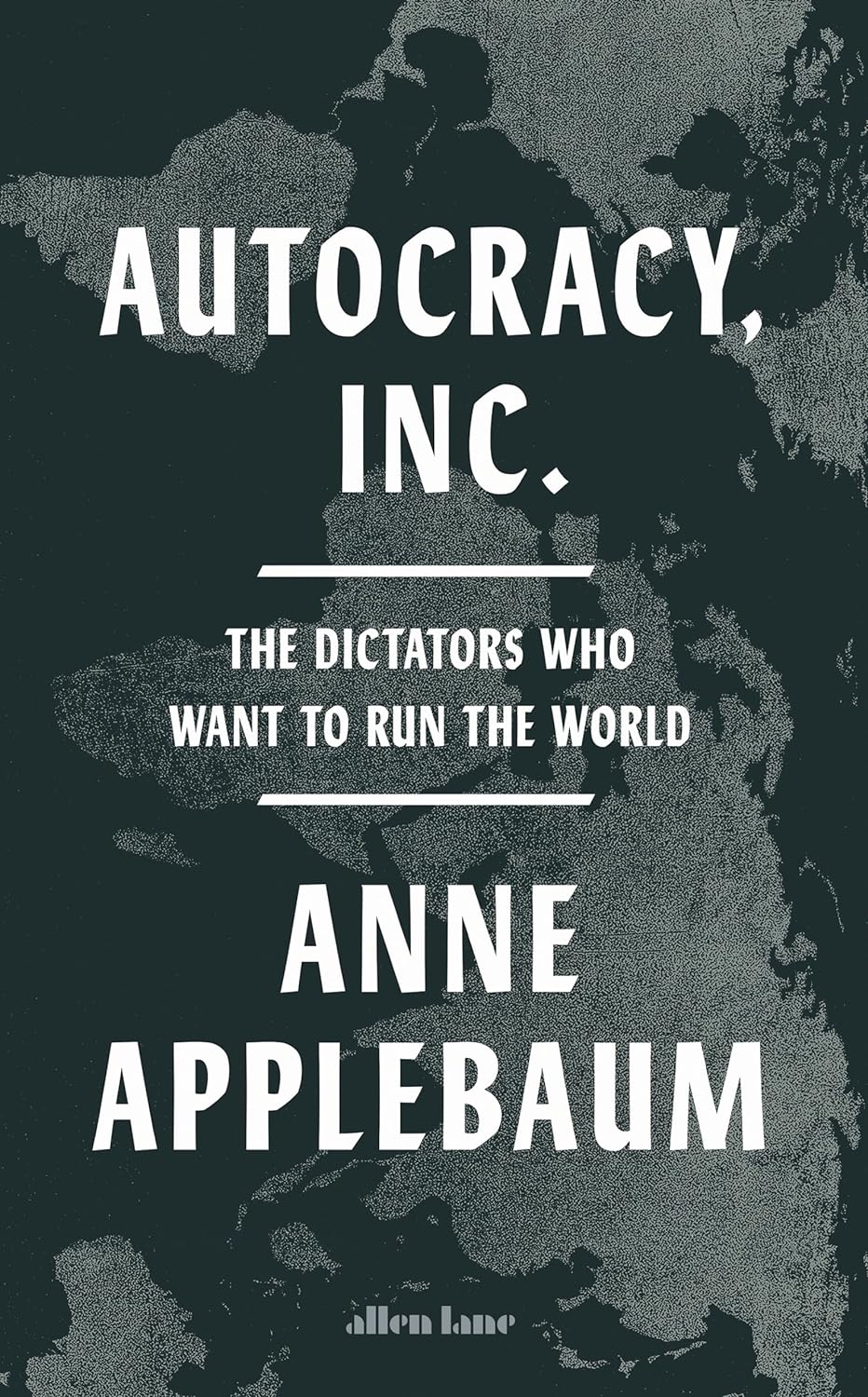
Autocracy, Inc: The Dictators Who Want to Run the World by Anne Applebaum
In the 1990s, when western politicians were going to the opera with Vladimir Putin and getting all misty-eyed about the potential for Chinese democracy, the American journalist Anne Applebaum was warning that all was not as rosy at it seemed. You could forgive her for making her latest book a crowing victory lap, but Autocracy, Inc — a tour d’horizon of the rise of dictatorships in east and west, north and south, from Russia to Zimbabwe via Turkey — is rigorous and ruthless. Its laser focus on the relationship between criminal cash and strongmen rulers may well come in handy from January too.
Allen Lane £20
Buy a copy of Autocracy, Inc here
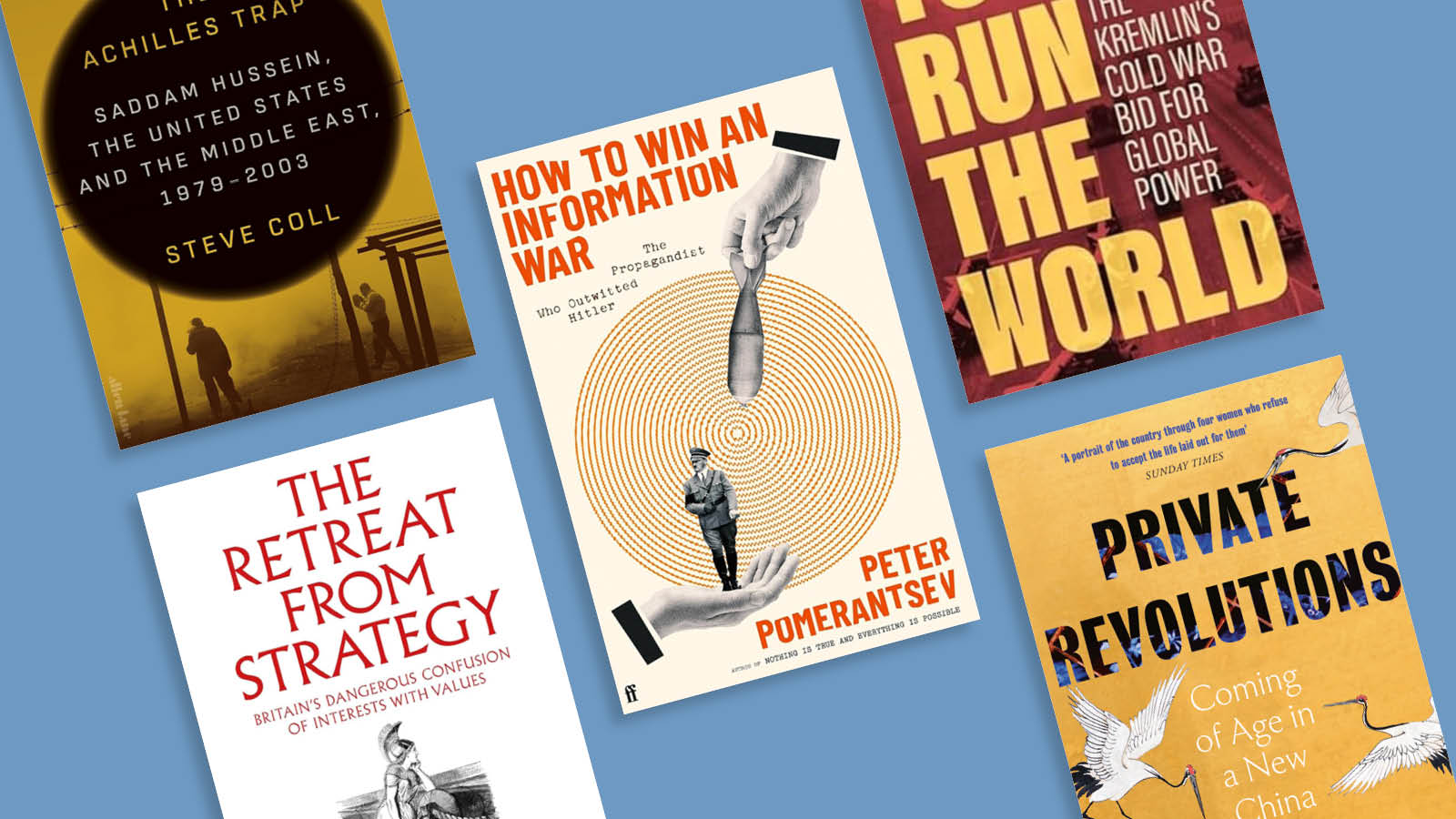
Plus, the 5 best world affairs books of the year
By Mark Urban
If you want to understand the black propaganda being pumped out from Russia, then read How to Win an Information War, an account of the cunning activities of Sefton Delmer, who used his skills as a tabloid hack to sow confusion and sap morale in Nazi Germany. But do we ever learn the lessons of the past? We suspect David Richards, the former chief of the defence staff, doesn’t think so: he gives an unsparing analysis of Britain’s underpowered defence strategy.
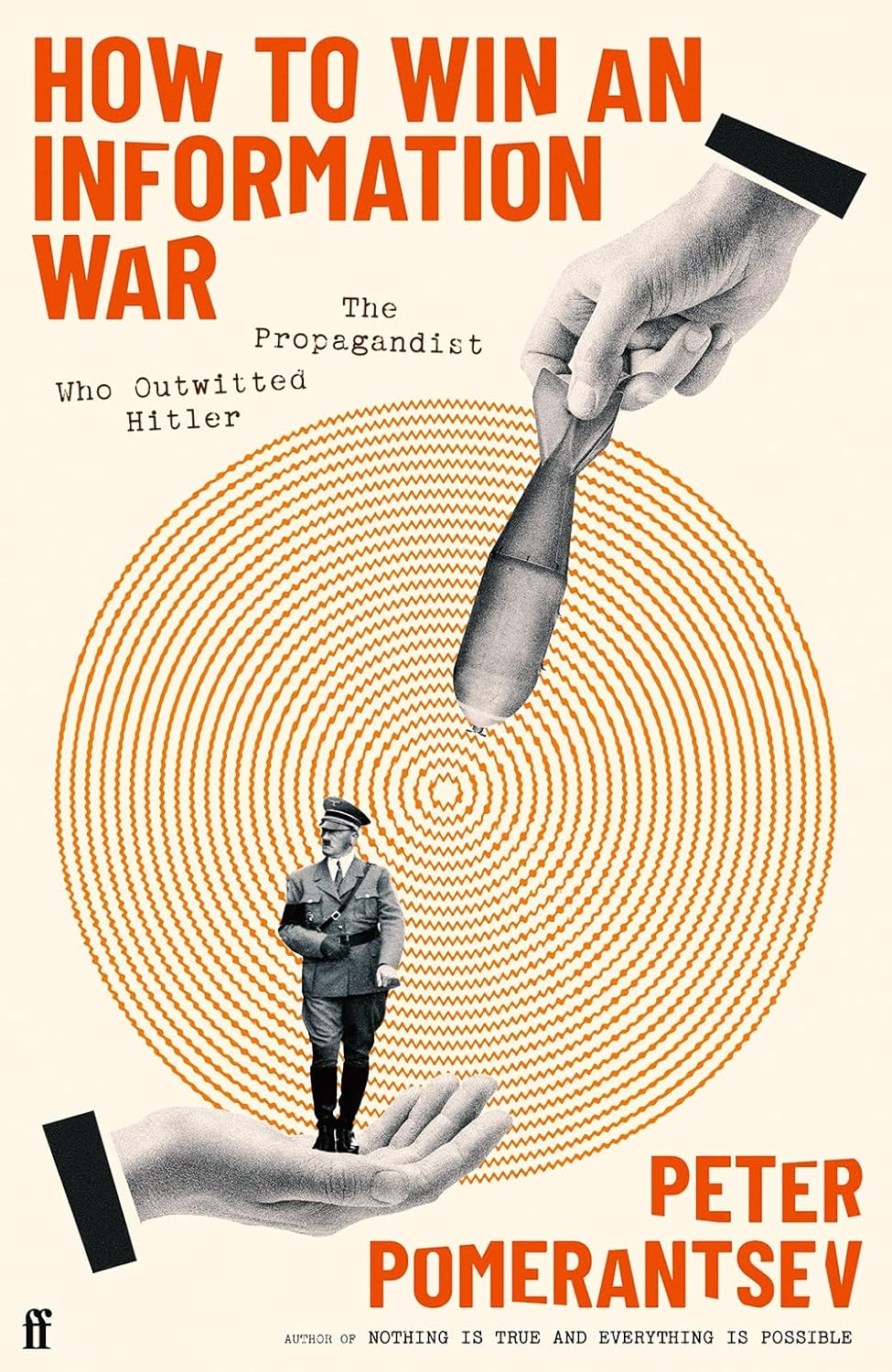
How to Win an Information War: The Propagandist Who Outwitted Hitler by Peter Pomerantsev
This beautifully crafted book is the third from an author who has made a speciality of exploring post-truth and information wars. It takes us to the secret world of the black propaganda units toiling away at Woburn Abbey, and in particular to the remarkable Sefton Delmer, who ran a successful operation against the Nazis. “How do you deliver truth to people who are resistant to it?” Peter Pomerantsev asks. It’s Hitler’s admirers he’s writing about, but he may just as well be focusing on today’s online warfare. Delmer’s gift was that, having grown up in Germany during the First World War, he could unlock the peculiarities of its psyche, from its self-loathing or “schweinhund” traits, to its weakness for authority figures, even its interest in sadomasochistic sex. Delmer set up propaganda stations that drew in Nazi supporters by pretending to be “super-patriotic”, then undermined their certainty by sharing tales of corruption or defeat at the front that they knew to be true. It’s a terrific tale that couldn’t be more timely.
Faber £20
Buy a copy of How to Win an Information War here
Advertisement
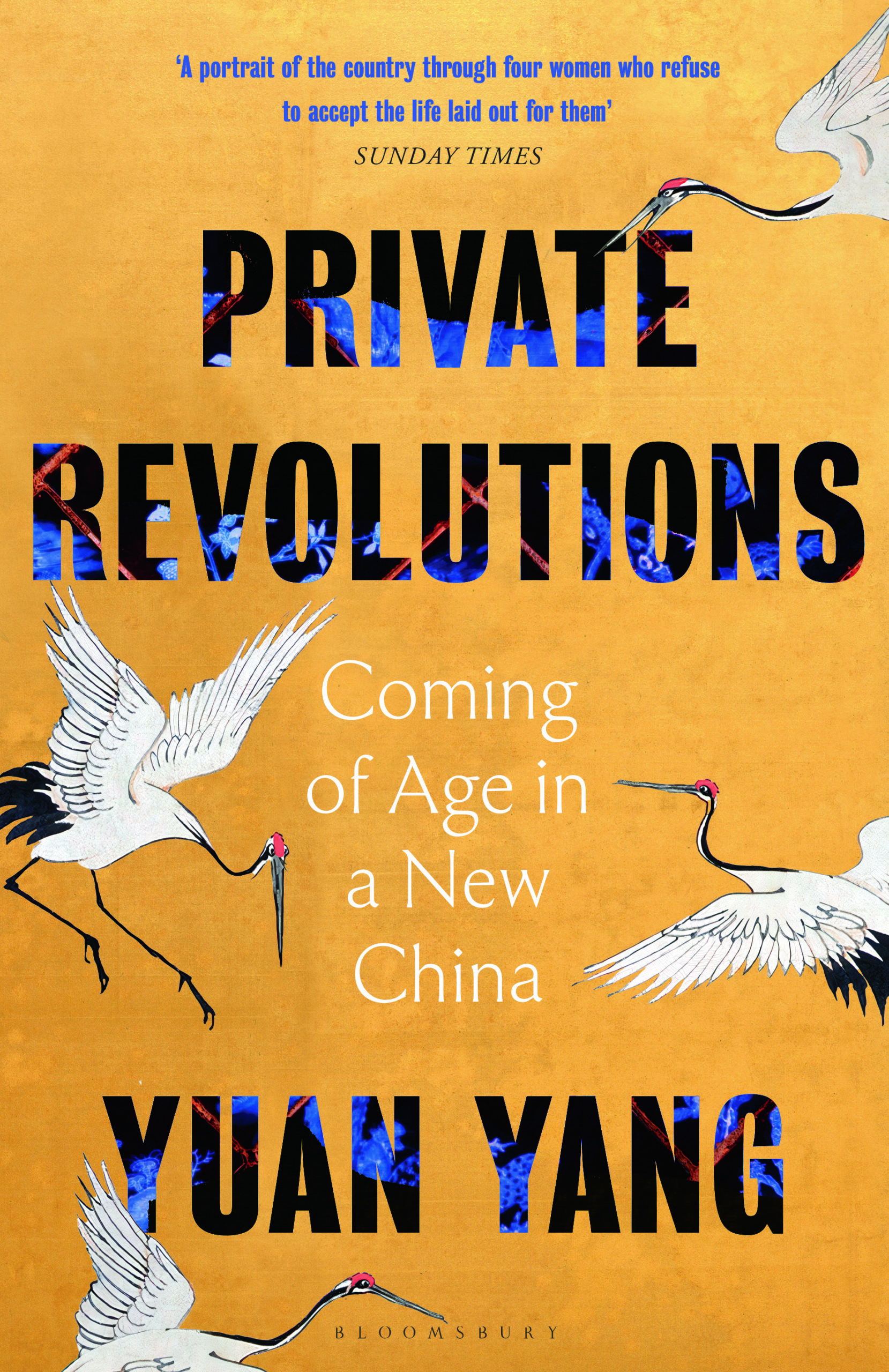
Private Revolutions: Coming of Age in a New China by Yuan Yang
Four women are chosen to represent China’s transformation. They are, the author writes, “unusually accomplished idealists”, who set forth in that spirit, “open to new ideas and self-transformation”. The scene is set in villages where young girls traditionally had little more to look forward to than backbreaking toil and trying to produce male children. “An inevitable life,” Yuan Yang writes of Leiya, one of her heroines, “a shit life.” So she and the other three opt for something different — they head to the cities, ending up in factories or colleges. It’s a remarkable debut from a gifted author who, having left China in 1990 for Britain, returned as a correspondent for the Financial Times. In July Yang became a Labour MP.
Bloomsbury Circus £22
Buy a copy of Private Revolutions here
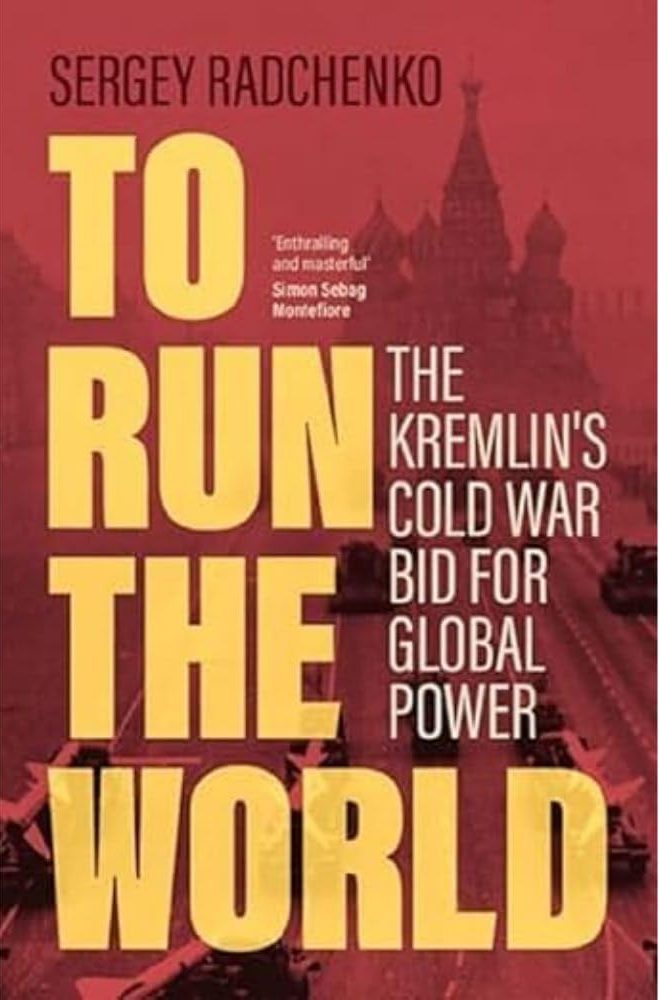
To Run the World: The Kremlin’s Cold War Bid for Global Power by Sergei Radchenko
Running through this history of post-1945 Soviet foreign policy is the theme of a resentful power that wants to be taken seriously. And that preoccupation with great power status remains relevant. Mining the archives during years when there was greater openness, Sergei Radchenko produces revelations ranging from the chilling to the bizarre. Soon after the Second World War, for example, Stalin felt the Soviet Union’s status required it to have colonies, taking a brief fancy to Libya, before this was thwarted by the western powers. Another great passage shows Stalin writing off the US as weak because it did not resort to nuclear weapons during the Korean War. Radchenko also charts the relationship between China and Russia, from a point when Soviet leaders expected to boss them about like the popes of a communist orthodoxy to the changed realities of more recent times.
CUP £30
Buy a copy of To Run the World here
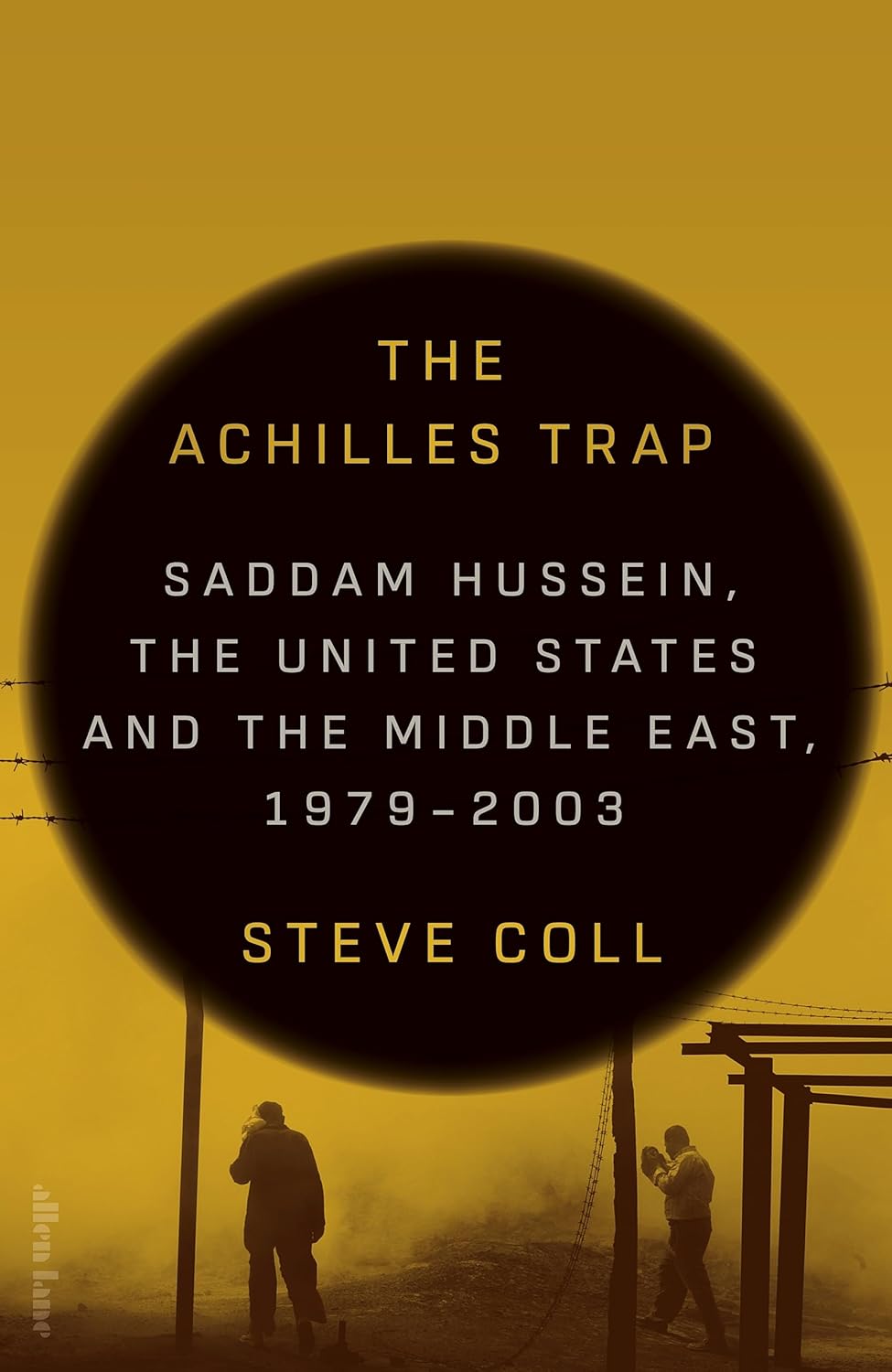
The Achilles Trap: Saddam Hussein, the United States and the Middle East, 1979-2003 by Steve Coll
This is a peerless exploration of Iraq’s dictatorship, enriched by material from hundreds of hours of recordings of Saddam Hussein’s government meetings, as well as the reflections of those around him. The book also exposes how American leaders misunderstood what was going on there, resulting in the disastrous invasion of 2003. If Iraq was hard to read, that was in no small part due to the layers of distrust, tight security and paranoia that surrounded Saddam. In the end even his most senior officials didn’t know whether they had weapons of mass destruction, and their speculation on this topic confirmed for the US intelligence agencies eavesdropping on them that there was deception afoot. This, though, is not an exploration of international statecraft. Rather, Steve Coll, whose gifts as a storyteller are prodigious, roots it in the personal stories of Iraqis who served the regime, serving the reader a feast of anecdote and insight.
Allen Lane £30
Buy a copy of The Achilles Trap here
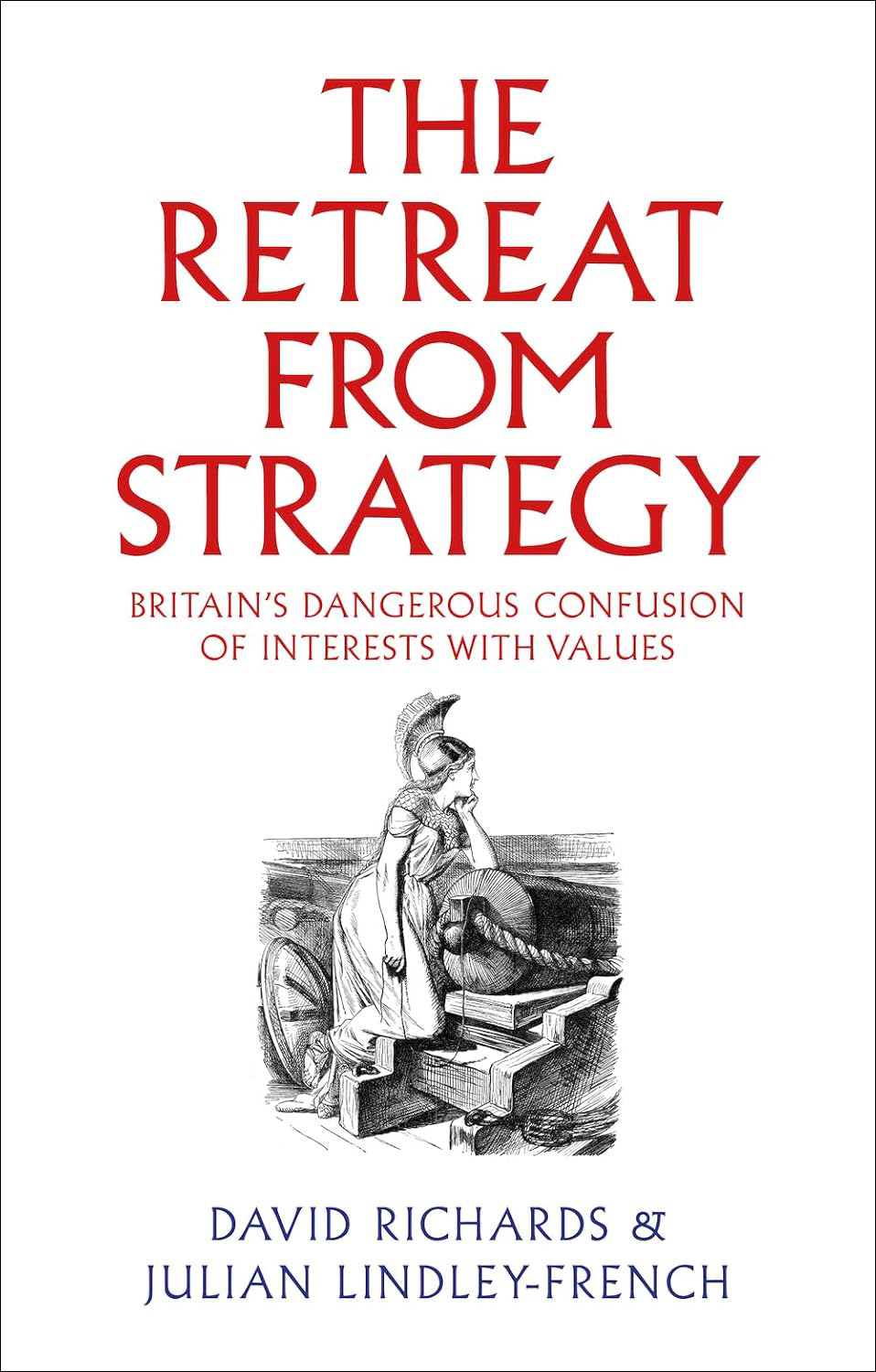
The Retreat from Strategy: Britain’s Dangerous Confusion of Interests with Values by David Richards and Julian Lindley-French
This is an unsparing dissection of flawed UK defence and security policy over the past 50 years, as it has degenerated into what the authors call “virtue imperialism”, propelled by “misplaced historical guilt”. Too many defence decisions, particularly since the disastrous 2010 defence review, have been driven by short-term political expediency. Too little emphasis has been given to financing a defence programme where the enormous costs of being a nuclear weapons state contribute to the hollowing out of everything else. But this is not the grumbling of two reactionary old soldiers from the sanctuary of their London club. Tony Blair and his defence secretary Des Browne are frequently cited as authorities, and the former chief of the defence staff David Richards knows all too well how badly governments of different hues have failed to pursue a coherent strategy. With a “profound shift of coercive power” in favour of China they argue the country needs to rethink its defence efforts. As for prescriptions, they urge the new Labour government to “think the unthinkable” about the country being attacked and to spend more on the military.
Hurst £25
Buy a copy of The Retreat from Strategy here
Explore more of The Times and Sunday Times best books of 2024 with our complete guide. Then see who’s topping The Sunday Times Bestsellers List — the UK’s definitive sales chart
Advertisement
★ Visit mytimesplus.co.ukfor your chance to win a Books of the Year bundle
What was the best political or world affairs book you read this year? Add your recommendations in the comments
This post was originally published on here







